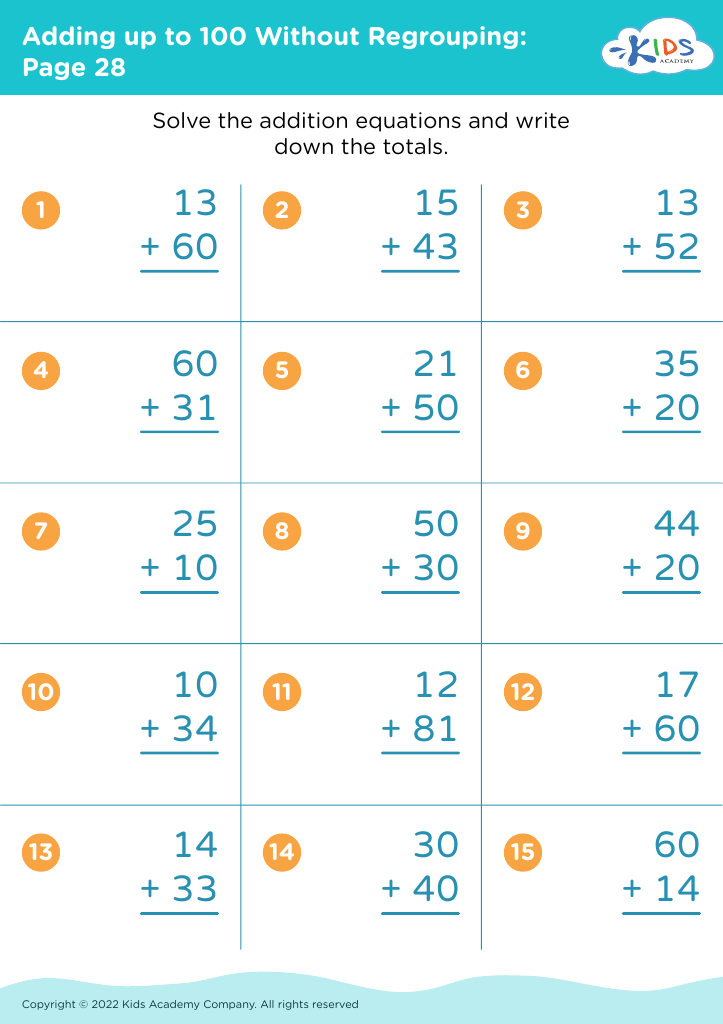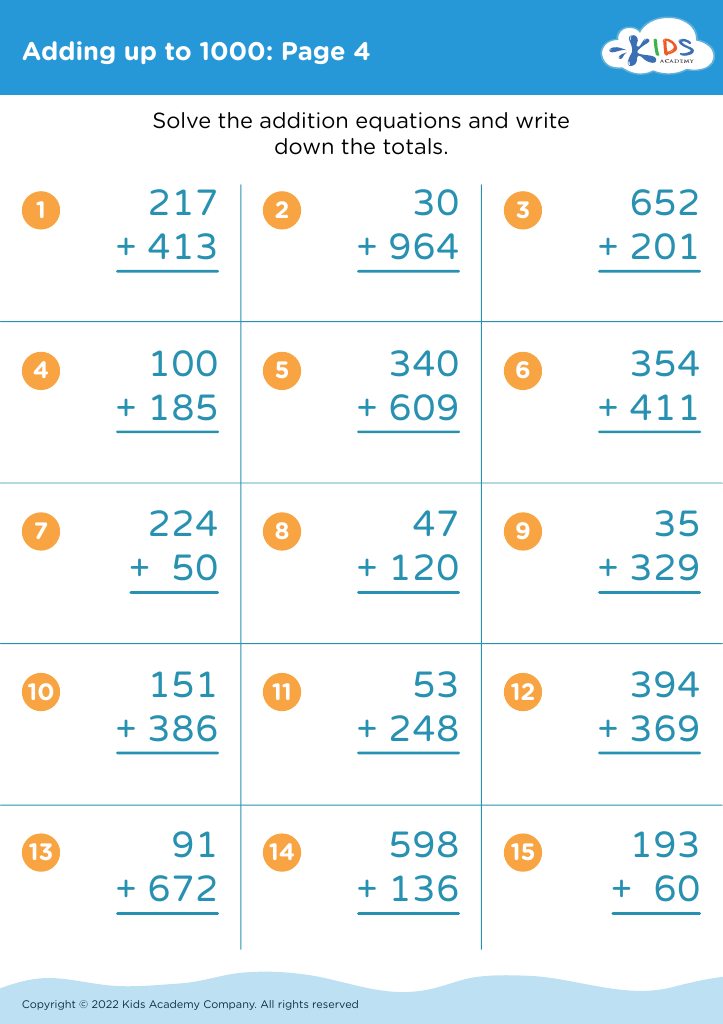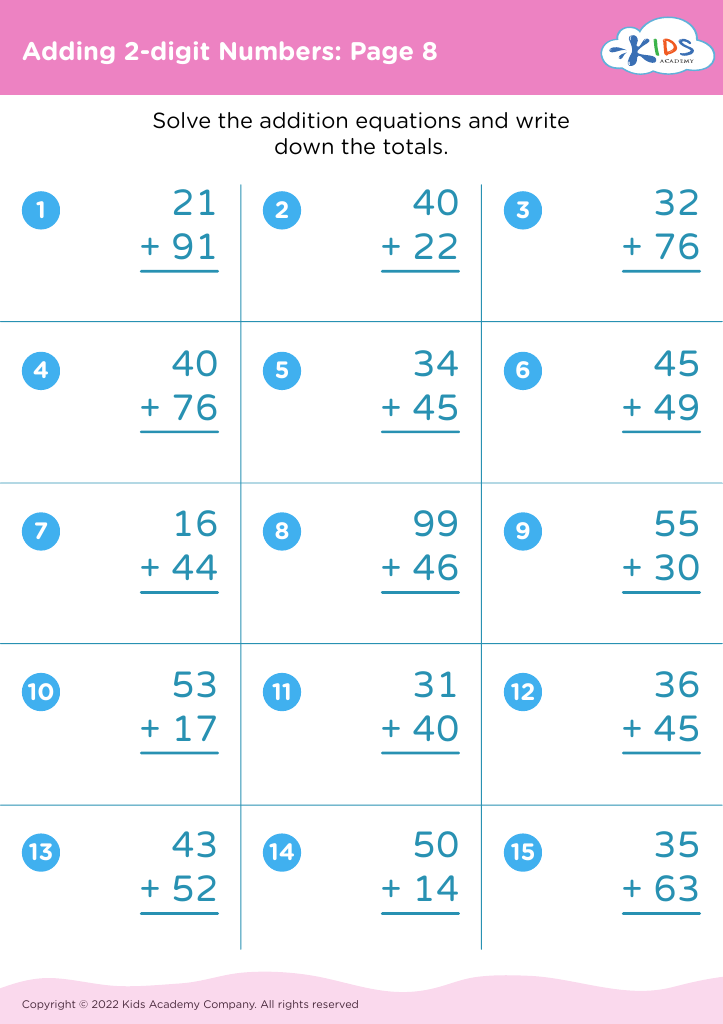Math problem-solving skills Addition Worksheets for Ages 3-9
3 filtered results
-
From - To
Enhance your child's math problem-solving skills with our expertly designed addition worksheets tailored for ages 3-9. These engaging, interactive worksheets help young learners build a solid foundation in addition through fun activities, colorful visuals, and age-appropriate challenges. Our resource nurtures essential skills such as critical thinking, number recognition, and arithmetic fluency. Whether they are just beginning to understand numbers or are ready to tackle more complex problems, these worksheets cater to each step of their learning journey. Boost confidence and ensure math success with our comprehensive addition worksheets from Kids Academy.
Math problem-solving skills, specifically addition, are crucial for children ages 3-9 due to their foundational importance in cognitive development and everyday functionality. At this stage, a child's brain is highly receptive to learning basic mathematical concepts, which serve as building blocks for more complex math in later years. Mastery of addition helps children develop critical thinking and reasoning skills, encouraging them to analyze and interpret situations quantitatively.
Moreover, proficiency in addition directly correlates with a child's confidence and attitude towards math. Early success in solving simple addition problems can foster a positive mindset about tackling more complicated math later in life, reducing math anxiety and promoting a love of learning. Development of these skills has practical benefits as well—children frequently encounter situations requiring basic math, such as sharing toys, counting to ten, or understanding dates on a calendar. These everyday applications help children see the relevance of math, making the learning process fun and engaging.
In essence, focusing on addition during these formative years helps build a strong mathematical foundation, supports cognitive development, improves problem-solving techniques, and enhances everyday functionality, setting the stage for future academic and life success.























